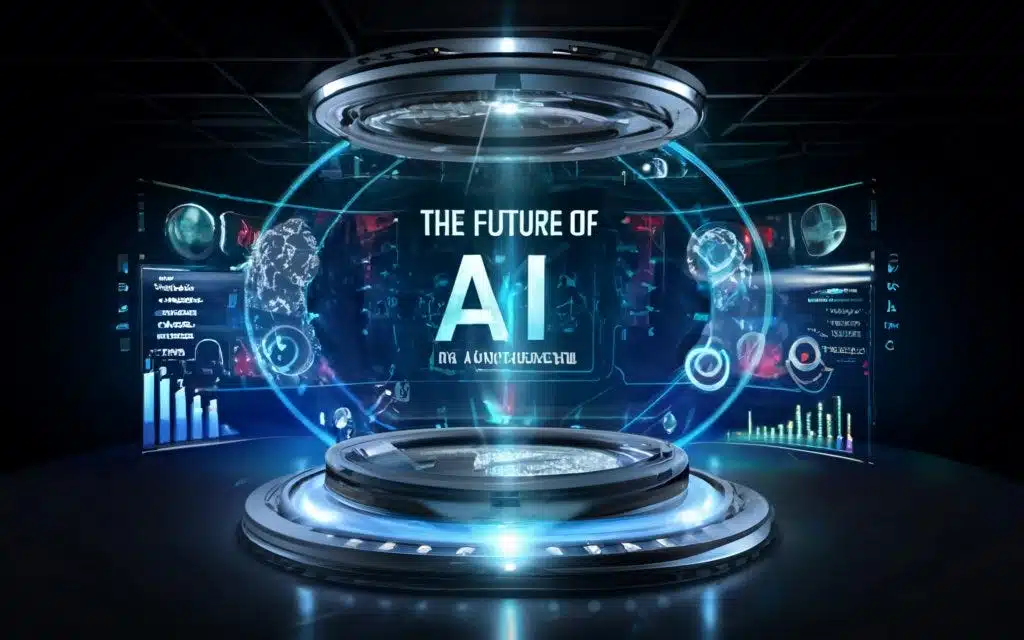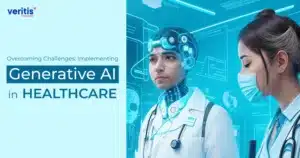Artificial Intelligence (AI) has become an integral part of our lives. On May 22, 2024, we delve into how AI is shaping our world and what the future holds.
Thank you for reading this post, don't forget to subscribe!Table of Contents
ToggleWhat is AI?
Artificial Intelligence, or AI, refers to the simulation of human intelligence in machines. These machines are programmed to think and learn like humans. The concept of AI dates back to the mid-20th century when pioneers like Alan Turing began exploring the possibilities of intelligent machines.
Current Applications of AI
AI is already transforming various sectors:
AI in Healthcare
AI assists doctors in diagnosing diseases, predicting patient outcomes, and personalizing treatment plans. AI-driven tools analyze medical images with high accuracy, detecting conditions like cancer at early stages.
AI in Finance
In finance, AI algorithms help detect fraudulent transactions, manage risks, and provide personalized financial advice. AI also powers robo-advisors, offering investment strategies to individuals.
AI in Transportation
Self-driving cars are a prominent example of AI in transportation. AI optimizes traffic management systems and enhances public transportation services, making travel safer and more efficient.
AI in Entertainment
AI curates personalized content on streaming platforms, creates realistic video game characters, and even writes scripts and music. It enhances the user experience by providing tailored recommendations.
Breakthroughs in AI Technology
AI technology continues to evolve at a rapid pace:
Machine Learning Advancements
Machine learning (ML) enables systems to learn from data and improve over time. Recent advancements in ML have led to more accurate predictive models and faster data processing.
Deep Learning Innovations
Deep learning, a subset of ML, uses neural networks with many layers. This approach has revolutionized image and speech recognition, enabling AI to understand and generate human-like responses.
Natural Language Processing (NLP)
NLP allows AI to understand and interact using human language. Innovations in NLP have led to more sophisticated chatbots and virtual assistants, capable of carrying on natural conversations.
AI and Ethics
As AI advances, ethical considerations become crucial:
Bias in AI
AI systems can inherit biases present in training data. This leads to unfair treatment and discrimination. Ensuring AI fairness is a major ethical challenge.
AI and Privacy Concerns
AI’s ability to process vast amounts of data raises privacy issues. It’s vital to develop policies that protect individuals’ data while allowing AI to function effectively.
The Future of AI
What lies ahead for AI?
Predictions for AI Development
Experts predict that AI will continue to grow, becoming more integrated into our daily lives. We can expect smarter personal assistants, more advanced healthcare solutions, and even AI-driven creativity.
Potential Impacts on Various Industries
AI will revolutionize industries like manufacturing, logistics, and customer service. Automation will increase efficiency, but it may also lead to significant job displacement.
AI in Daily Life
AI is making everyday tasks easier:
Smart Homes
Smart home devices use AI to automate household tasks, from controlling lighting and temperature to managing security systems.
Personal Assistants
AI-powered assistants like Siri, Alexa, and Google Assistant help with tasks such as setting reminders, answering queries, and managing schedules.
AI in Education
AI tutors provide personalized learning experiences, adapting to students’ needs and helping educators identify areas where students struggle.
AI and the Job Market
The impact of AI on employment is a hot topic:
Job Displacement Fears
Many fear that AI will replace human jobs. While some roles may become obsolete, AI will also create new opportunities.
New Job Opportunities
AI will lead to the creation of new jobs in fields like AI development, data analysis, and cybersecurity. The key is adapting to these changes.
Reskilling and Upskilling
To stay relevant, workers must reskill and upskill. Education and training programs are crucial in preparing the workforce for an AI-driven future.
AI in Scientific Research
AI is a powerful tool in research:
AI in Medical Research
AI accelerates drug discovery and helps identify potential treatments for diseases. It can analyze vast datasets to uncover patterns that humans might miss.
AI in Environmental Science
AI models predict climate change impacts, helping scientists develop strategies to combat global warming. It also assists in monitoring wildlife and managing natural resources.
Challenges Facing AI Development
Developing AI isn’t without hurdles:
Technical Challenges
AI systems require vast amounts of data and computational power. Ensuring these systems are reliable and secure is a significant technical challenge.
Ethical and Social Challenges
Addressing bias, ensuring privacy, and managing the societal impact of AI are ongoing concerns. Collaboration between technologists, ethicists, and policymakers is essential.
AI and the Global Economy
AI has a profound impact on the global economy:
Economic Benefits of AI
AI boosts productivity, drives innovation, and opens new markets. It can lead to significant economic growth if managed properly.
AI and Economic Inequality
There is a risk that AI could widen the gap between the rich and the poor. Policies are needed to ensure that AI benefits are shared broadly.
The Role of Governments in AI Development
Governments play a crucial role in shaping AI’s future:
Government Policies
Policymakers must create regulations that promote innovation while addressing ethical concerns. This includes data protection laws and guidelines for AI use.
International Cooperation
Global cooperation is vital to tackle AI’s challenges and ensure its benefits are realized worldwide. International agreements can help standardize AI regulations and share best practices.
AI Startups and Innovation
Startups are at the forefront of AI innovation:
Prominent AI Startups
Many startups are pushing the boundaries of AI, developing new applications and technologies that drive progress.
How Startups are Driving Innovation
Startups often focus on niche areas, providing innovative solutions that large companies might overlook. They play a crucial role in the AI ecosystem.
Public Perception of AI
Understanding public perception is important:
Common Misconceptions
Many people fear AI will lead to job loss and privacy invasion. Education and transparency are key to addressing these fears.
Public Trust in AI
Building trust in AI requires ethical practices, transparency, and demonstrating AI’s positive impacts on society.
Overview
AI is a transformative technology with the potential to revolutionize various aspects of our lives. While there are challenges to overcome, the benefits of AI are immense. By addressing ethical concerns and preparing for future changes, we can harness AI’s power for the greater good.
FAQs
What is AI?
AI stands for Artificial Intelligence, which is the simulation of human intelligence in machines.
How is AI used in healthcare?
AI helps diagnose diseases, predict patient outcomes, and personalize treatment plans.
What are the ethical concerns with AI?
Ethical concerns include bias in AI systems, privacy issues, and the impact on employment.
How will AI impact jobs?
AI may displace some jobs but will also create new opportunities. Reskilling and upskilling are crucial.
What is the future of AI?
AI will continue to integrate into daily life, transforming industries and creating new possibilities.











